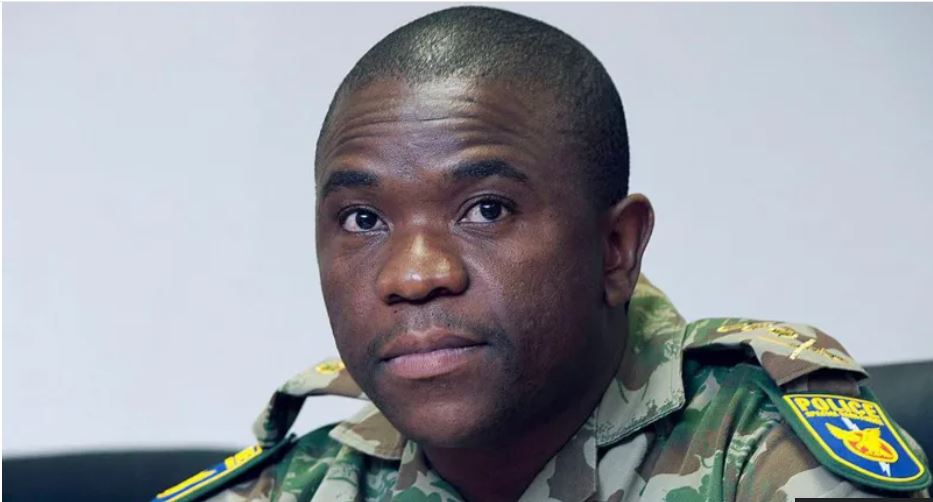South Africa is reeling after KwaZulu-Natal Police Commissioner, Gen Nhlanhla Mkhwanazi, publicly accused Police Minister Senzo Mchunu of links to organised crime. In a dramatic press conference flanked by armed officers, Mkhwanazi claimed criminal syndicates had infiltrated President Cyril Ramaphosa’s administration and accused Mchunu of disbanding an elite unit investigating political murders and drug cartels.
Mkhwanazi alleged that 121 critical case dockets are now “gathering dust” at national headquarters, accusing political interference of derailing efforts to dismantle a powerful drug cartel embedded in the business sector, judiciary, prisons, and prosecution services. “I will die for this badge. I will not back down,” he vowed in a nationally televised address.
Public support for Mkhwanazi has surged, with #HandsoffNhlanhlaMkhwanazi trending on X (formerly Twitter). His reputation as a no-nonsense officer was cemented years ago when he suspended crime intelligence boss Richard Mdluli an ally of then-President Jacob Zuma despite political pressure. Mdluli was later jailed for kidnapping and assault, vindicating Mkhwanazi’s stance.
Although previously sidelined, Mkhwanazi returned to the spotlight in 2018 to tackle rampant political killings in KwaZulu-Natal. His recent claims have led to the dismissal of Mchunu, with Firoz Cachalia, a respected legal academic and former safety minister, set to take over as acting police minister next month.
While Mchunu has dismissed the allegations as “wild and baseless,” many citizens see Mkhwanazi as a rare beacon of integrity in a police service plagued by corruption and dysfunction. A recent survey by the Human Sciences Research Council showed public trust in the police is at a record low of 22%.
However, Mkhwanazi himself is not without controversy, including past accusations of interfering in investigations—though he was recently cleared. Despite criticism of heavy-handed tactics by his officers, crime experts say South Africans are willing to overlook this in their desperate search for a police hero.
With the stakes high, Mkhwanazi must now substantiate his explosive claims or risk political and professional fallout. For now, he stands as a symbol of resistance against a deeply entrenched culture of corruption.

